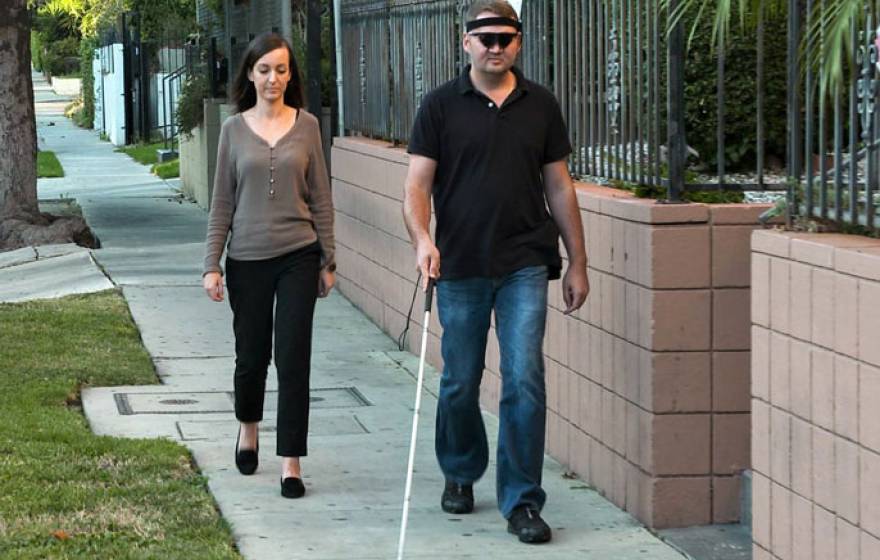We take it for granted, but our innate ability to navigate is actually extraordinary and rooted in the brain.
Believe it or not, you have a really good sense of direction
In Down syndrome mouse model, scientists reverse intellectual deficits with drugs
Scientists were able to correct learning and memory deficits associated with the condition in a surprising new finding.
Escaping Alzheimer’s
One woman’s resistance to genetic, early-onset Alzheimer’s may hold the key to future therapies.
Dyslexia, other learning challenges are focus of new $20M initiative
UCSF and UC Berkeley join forces to understand dyslexia and other specific neurodevelopmental differences that impact learning.
Brain implant restores visual perception to the blind
People without sight can detect motion, distinguish light and dark with a new wireless device.
Medical scanning rates continue to rise despite health risks
CT scans deliver far higher doses of radiation than traditional X-rays, a factor patients should consider, researchers say.
New hope for people who stutter
A new clinical trial shows the medication ecopipam shortened stuttering episodes and increased speech fluency.
Prenatal pesticide exposure linked to changes in teen’s brain activity
New study is one of the first to use advanced brain imaging to reveal how exposure to these chemicals changes the brain.
An alternate theory for what causes Alzheimer's disease
A unique neurological signature not previously identified in patients may provide a path to new, more successful trials.
Unmasking concussion with a simple blood test
A blood test that costs a fraction of the price of a brain scan may flag concussion in patients that pass CT tests.
Why grandpa and grandma should be playing video games
Online brain exercises can help seniors multitask as well as people 50 years younger.
The case against reality
Evolution has trained humans to construct reality, rather than to see the world as it truly is.











